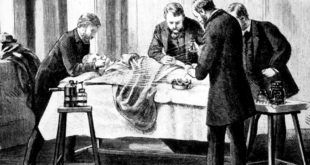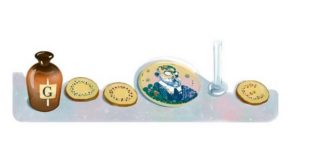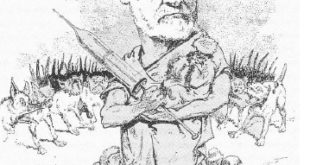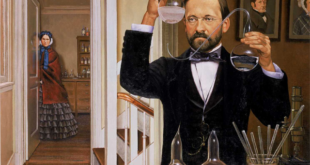Originally published in the “Journal of the American Medical Association, Volume I.”
FOREIGN CORRESPONDENCE.
PARIS LETTER.
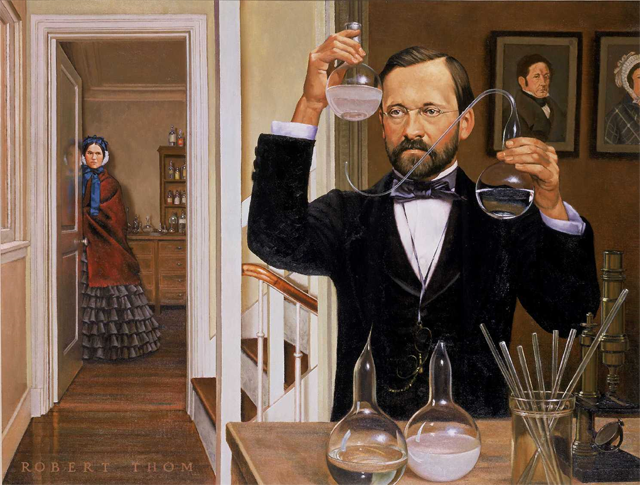
Of all the theories propounded at the Paris Academy of Medicine, I know of none more absurd than that enunciated by M. Decroix, a retired army veterinary surgeon, on the depopulation of France, and the degradation of the French nation. In his paper, which he read at a meeting of the Academy, the author endeavored to make out that these conditions were brought about by the abuse of tobacco, which, in France, contained at least 9 or 10 per cent, of nicotine, and which, by its pernicious influence on the ‘ system, caused a diminution in the number of births and an increased rate of infantile mortality. Whether this theory was considered worth listening to or not, the members present paid no attention to the reading of the paper, which was performed in the midst of noise and marked indifference in the Assembly.
To produce anesthesia for surgical purposes, the smallest amount of chloroform as pure as it can be obtained, is to be poured on the linen on the part covering the space between the nose and the mouth. This the patient inhales, and at the end of the expiration that follows, a second drop is poured on the linen, which the patient inhales, so that at each inspiration the patient takes in one drop of chloroform vapour mixed with the inspired air. The patient is recommended to breathe naturally, and, if after a few minutes anesthesia is not produced, two drops instead of one : are to be poured. This has been the subject of a communication by Dr. Seyraud, of Bordeaux. In this paper the author objects to the “siderative” method employed by surgeons in the administration of this substance, and he proposes in its stead the following method, to which he has given the name of “Methode Dosimétrique.” It consists of a piece of batiste folded twice and extended over the face of the ! patient in such a way that only the nose and mouth are covered by it. One single drop of chloroform ] on the linen for each inspiration. In this way complete anesthesia is obtained in seven or ten minutes, which is arrived at gradually without the intervention of the stage of excitement or of hypersesthesia, even I in alcoholic subjects and the most nervous women. | As soon as anesthesia is obtained, the chloroform must be suspended for one or two minutes and then administered in doses of two drops per minute, on an I average, if it is desired to prolong the chloroformic sleep independent of operation. If the patient has a tendency to wake up, the dose should be increased, ¡ and the author has by this means been enabled to keep up anesthesia for an hour and a half. The advantages claimed for this method, are the procuring of anesthesia more rapidly and more economically than with the method in vogue, and the avoidance of the risks inherent to chloroform.
Cholera of the genuine Asiatic type, which broke out in Egypt about the 22d of June, has naturally excited considerable alarm among the inhabitants of Europe. In France, while every precaution is taken to prevent actual invasion, the sages are expatiating on the etiology and nature of the disease. Nothing particularly new has been advanced. While it is believed by some, and they are in the majority, that every outbreak of Asiatic cholera can be traced to India, others affirm that it may originate de novo. M. Jules. Guérin is the invincible representative of the latter theory, and at a recent discussion of the subject at the Academy of Medicine, he reiterated the opinion he expressed more than forty years ago at the same Academy, that the disease was not contagious except under certain conditions of aptitude and receptivity ; that each epidemic was purely local, and that the evolution of the disease, like that of other epidemics, was the product of certain ” medical constitutions ” resulting from successive modifications of the atmosphere and of the organism. This view was vehemently opposed by M. Fauvel and others, who expressed themselves in rather strong terms against the English, whom they condemned as being too mercantile and selfish to allow their own interests to suffer in any way. They referred to the non-observance by the English of quarantine, though they themselves are beginning to find out that practically such a stringent measure was of itself of little use in effectually checking the spread of the disease. But I am afraid that our learned confrères were actuated more by political than by purely scientific considerations, as their language, and indeed that of the French press in general, has been stamped with great acrimony against the English ; so much so that the latter have considered it necessary, by semi-official communications, to remonstrate with our French neighbors, and, it is to be hoped, with some effect, for, after all, there can be no objection to the discussion of international interests, but it must be carried on with loyalty and courteous impartiality.
It was to be expected that M. Pasteur, the great “microbist,” as he is called, must have his say in the matter. He has organized a scientific mission which is to proceed to Egypt, to study the nature of the malady, and he foresees the possible existence of a microbe in the blood or in some of the viscera, which, if discovered, would marvelously simplify not only all prophylactic measures, but would open a new field for the more rational therapeutics of the disease. The mission is composed of men selected by M. Pasteur, and the necessary funds and sanction have been granted by the Parliament for the purpose. The following are the names of the members : M. M. Roux and Thuillier, attached to the laboratory of -M. Pasteur: Strauss Agrégé, of the Faculty of Medicine of Paris, and Nocard, professor of veterinary medicine, all well known for their biological researches. M. Pasteur has given them written instructions, not only as regards the prosecution of their investigations, but for their own protection against possible infection.
 Pasteur Brewing Louis Pasteur – Science, Health, and Brewing
Pasteur Brewing Louis Pasteur – Science, Health, and Brewing 